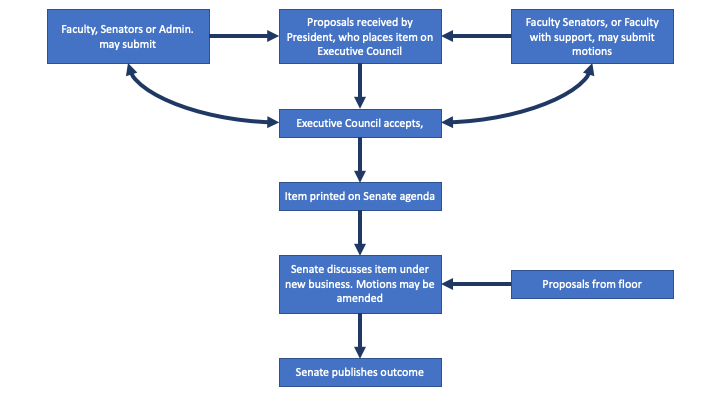General Discussion
A Senator, member of the faculty, or member of the Administration, may submit to the President an item for general discussion for inclusion on the agenda for the Senate.
Motions
Faculty Senator, or any faculty member with the supporting signatures of twenty other faculty members, may submit to the President a proposed motion for inclusion on the agenda for the Senate. To be in proper form a proposed motion must be written and should contain a single item for adoption by the Senate. Proposed motions not in proper form may be put into proper form by the Executive Council as long as the intent is not altered; if this is not possible the proposal will be returned to its author within seven days of the decision.
Determination
Upon receipt, the President will place the proposed item on the agenda of the next Executive Council meeting. At that time the Executive Council may add the proposed item to the agenda of a Senate meeting, deny it a place on the agenda, or table the proposed item until the next meeting of the Executive Council. The president shall communicate the decision of the Executive Council to the individual who submitted the proposal within seven days.
Annual Distinguished College Faculty Lecture
At the end of each academic year, a distinguished faculty member from Emory College of Arts and Sciences shall present their work to senators, colleagues in the College, and the public at large.
To this extent, the Executive Council will solicit, and evaluate nominations, and will elect the distinguished lecturer from among the faculty of Emory College of Arts and Sciences. In cooperation with the Dean, the Executive Council will invite the elected lecturer and arrange for their lecture at the end of the academic year. The Dean and Faculty Senate President introduces the distinguished lecturer.
